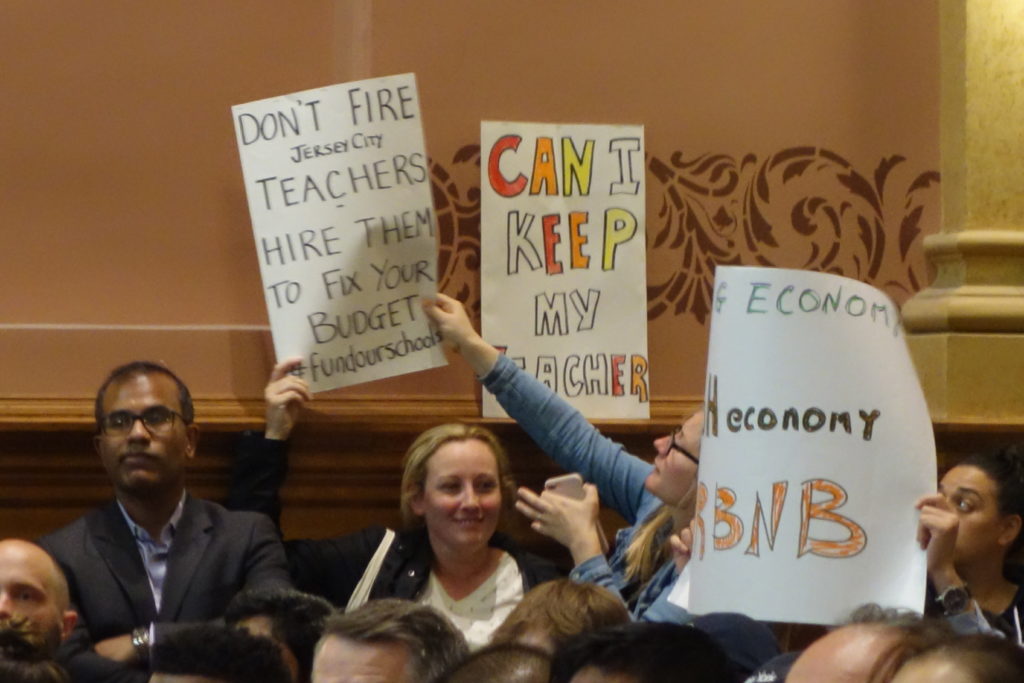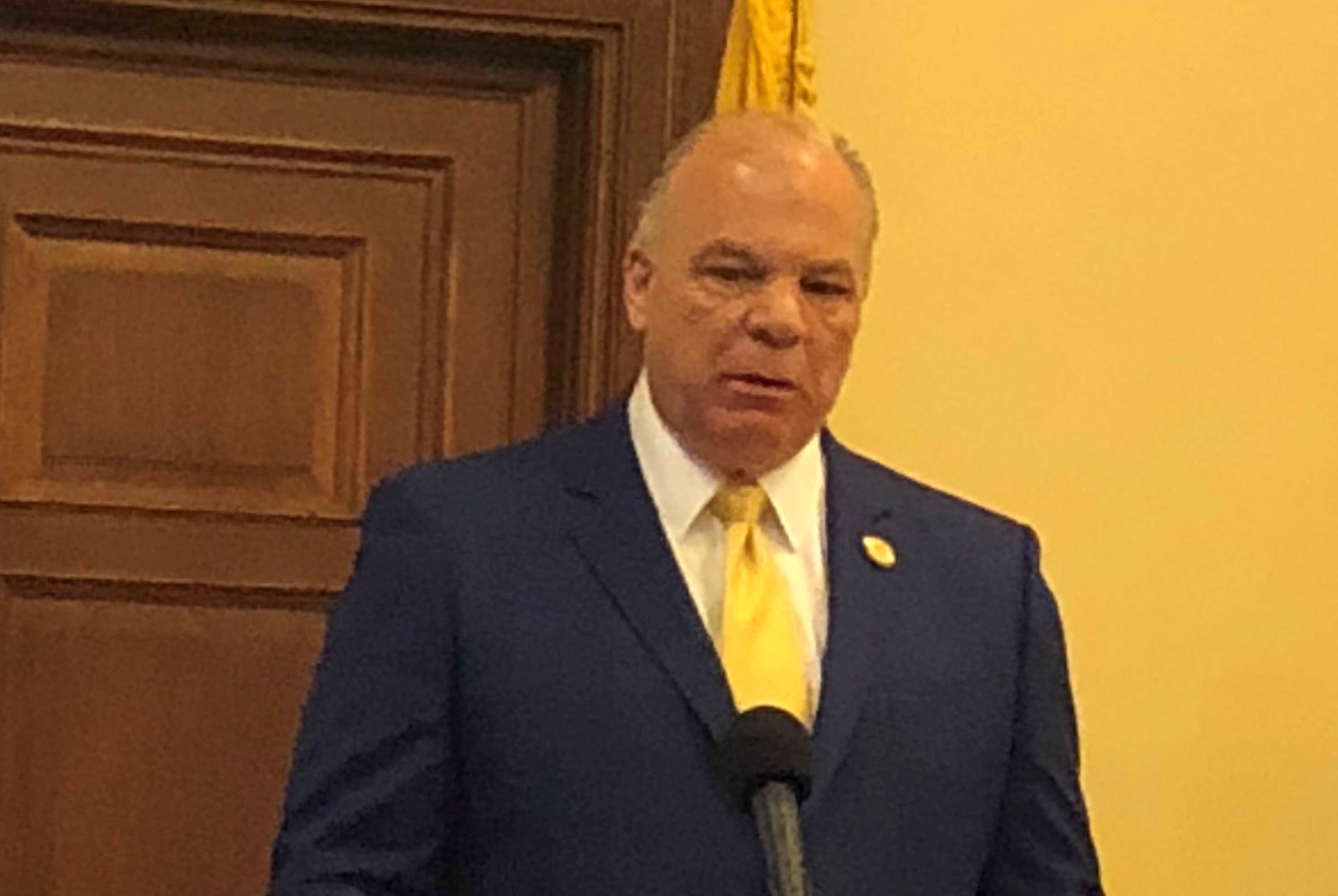NJEA’s Local Chance to Test its Strength

Political satirist Will Rogers once pondered why politicians won’t resist giving lobbyists what they want – in fact, he concluded, they don’t even try. Until Gov. Chris Christie labelled it public enemy number one, this as been the case in dealing with the state’s largest lobbyist, the New Jersey Educational Association (NJEA).
The NJEA is the state’s most cohesive and well-organized special interest group, representing most public school teachers.
NJEA’s ability to mobilize on an issue has historically scared the bejesus out of politicians when confronted with letter-writing or petition campaigns. Who in their right mind will take on so many teachers, most of whom can carry their message to parents and other school advocates – especially leading up to an election?
Part of NJEA clout, however, comes from the fact that it largely has weak opposition, as opposed to other powerful special interests such as the fossil fuel, pharmaceutical and insurance industry. Until Christie challenged the NJEA, most opposition came from groups such as the NJ School Boards Association, which could not rival the membership of the NJEA.

While the NJEA is hardly a toothless tiger, its inability to unseat state Senate President Stephen Sweeney in 2017 may have shown a weakness few other politicians thought they could exploit in the past. Money and political organization still trump advocacy, regardless of how many members and organization like the NJEA.
Sweeney’s victory might explain the somewhat confused slate of endorsements the NJEA made for the upcoming state Assembly races that included GOP candidates over Democrats, and in one case, a candidate running against one of its own members – something many of us lapsed Catholics might still consider a mortal sin.
Fortunately, when God closes a door – as my nun teachers used to say – God opens a window. And the NJEA appears to have an opportunity to redeem itself in the upcoming Jersey City Board of Education election.
Already being billed as potentially the most expensive board election in state history, the Jersey City board election will likely see the NJEA sending money and troops into Jersey City to help the local union retain control of one of the state’s biggest school districts.
Some have labelled this as an election between corporate interests and the local teachers’ union, but in fact the conflict is as complex as the Vietnam War was, where powerful political interests are using the local candidates as proxies for a larger battle statewide. In some sense, this election will test the ability of the NJEA to deliver the vote and allow candidates backed by the local teachers’ union to retain control of the board.
LeFrak and Mac Cali, two of the most prominent companies in Jersey City, appear to be funding a

political action committee (PAC) backing an anti-union slate. While Jersey City Mayor Steven Fulop appears to be supporting the union-backed candidates, some of those involved with the anti-union PAC are former members of his administration and still key political figures in his political organization.
Already called “Flip Flop Fulop” by critics on other issues, Fulop was not always a supporter of the local teachers’ union. In fact, it was his political organization that helped progressives wrestle control from the union’s grasp back in 2012 and allowed progressives to replace then Superintendent Charles Epps with progressive Dr. Marica Lyles – someone the unions came to loath and vowed to replace.
The progressive led board fell out of Fulop’s favor when they refused to sign off on development agreements Fulop brokered as part of abatement packages. The Fulop Administration offered
developers increased abatement bonuses if a project included pre-k facilities. The progressive-led board balked when the district was asked to rent these spaces at significantly high costs.
Fulop, with ambitions to become governor apparently also did not want to incur the wrath of the NJEA switched sides, and his political organization helped union-backed candidates retake control of the board, which promptly suspended Lyles and replaced her with a temporary superintendent of their liking. Outnumbered by union-backed board members, the progressives began to resign the board, leaping off what some see as a school district sinking as fast as the Titanic.
Early on, abatements were the Fulop Administration’s bread and butter for expanding the city’s ratable base, filling the city coffers more than traditional taxes would provide but short-changing the school district which saw none of that revenue.
But because state aid paid for two thirds of the school district’s annual budget, local taxpayers didn’t feel the pinch. In fact, some members of the Fulop Administration even boasted about this fact, even as progressive members of the school board warned them of a change of attitude on a state level.
Jersey City is the fastest growing city in the state – if not the region – and some politicians such as Sweeney began to question about the unfairness of a funding formula that gave state aid to Jersey City when abated properties did not.
This resulted in a massive cut in state aid to Jersey City, even though many local school officials said

former Gov. Christie had refused to give the city the level of aid recommended by the state Department of Education in 2008.
The cut along with an annual budget deficit has the potential to devastate the district, reducing the number of teachers, teachers’ aides and administrators and increasing class sizes.
Enter stage right, state Senator Sandra Cunningham, who represents half of Jersey City. A political ally of Sweeney, Cunningham introduced legislation that would impose a payroll tax similar to one already in existence in Newark. LeFrak and Mac Cali were among the corporate interests that sued to stop the tax but lost the suit. As a result, these two mega developers appear to be backing anti-union candidates who might wrestle back control of the board.

In a normal year, the board election would only have three seats up. But resignations earlier this year will have five seats open – and a sweep could result in a change of control over the nine-member board.
Fearing a possible shift in control in January, the current board had fast-tracked selection of a new superintendent to find a replacement for Lyles. A new anti-union board could conceivably restore Lyles as superintendent if no permanent replacement has been found by then.
All this is a nightmare election for progressives, who in the past have opposed the teachers’ unions and supported Lyles. But in the current climate, progressives might have to choose between supporting board members loyal to Lyles but at the expense of increased class sizes and fewer teachers in the classrooms.










Leave a Reply